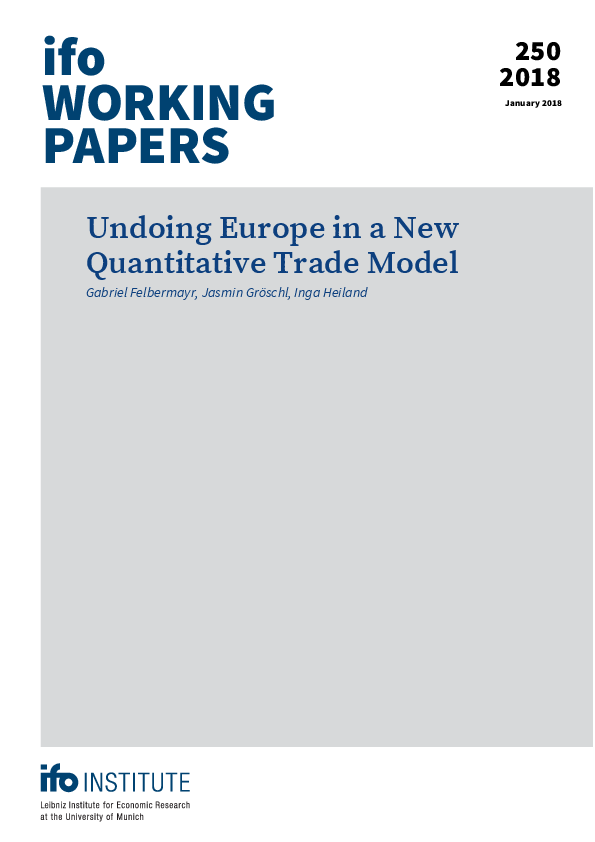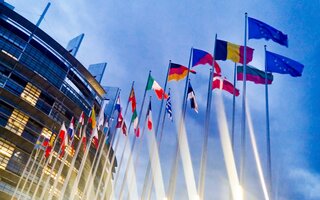Autoren
Erscheinungsdatum
JEL Classification
Internationaler Handel
Europa
We employ theory-grounded sectoral gravity models to estimate the effects of various steps of European product market integration on trade flows. We embed these estimates into a static Ricardian quantitative trade model featuring 43 countries and 50 goods and services sectors. Paying attention to the role of non-tariff trade barriers and of intra- and international value added networks, we simulate lower bounds to the trade, output, and welfare effects of different disintegration scenarios. Bootstrapping standard errors, we find statistically significant welfare losses of up to 23% of the 2014 baseline, but we also document a strong degree of heterogeneity across EU insiders. Effects on EU outsiders are often insignificant. The welfare effects from the Single Market dominate quantitatively, but the gains from Schengen and Eurozone membership are substantial for many countries as well. Percentage losses are more pronounced for more central EU members, while larger and richer countries tend to lose less. The effects of income transfers reveal some surprising patterns driven by terms-of-trade adjustments.






